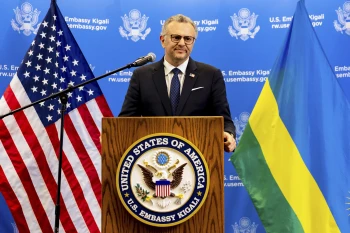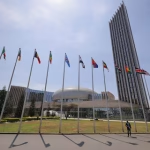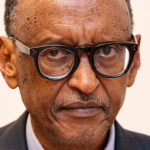In a diplomatic visit marked by affirmations of cooperation and peace, a senior U.S. official recently arrived in Rwanda to reinforce Washington’s commitment to stability and progress in East Africa. This visit comes amid growing concerns over regional security and the ongoing challenges posed by conflicts and humanitarian issues affecting the Horn of Africa.
The visit, which underscores the United States’ strategic interests in East Africa, involved a series of meetings with Rwandan leaders and discussions on various topics, including security, economic cooperation, and human rights. The official, who serves in a key diplomatic role, emphasized the importance of collaboration in addressing the multifaceted issues that affect East African nations.
Pillars of Peace and Stability
The U.S. has long recognized the strategic importance of East Africa, a region that holds significant geopolitical relevance due to its proximity to critical maritime routes, as well as its potential for economic growth. During the Rwanda visit, the U.S. official reiterated Washington’s commitment to partner with African nations in fostering peace and stability. By supporting initiatives that promote good governance, conflict resolution, and sustainable development, the U.S. aims to not just address immediate security concerns, but to also lay a foundation for long-term stability in the region.
The recent history of Rwanda, marked by the 1994 genocide, highlights the crucial need for ongoing international engagement. As a nation that has worked diligently to overcome past traumas and rebuild itself, Rwanda serves as both a symbol of resilience and a model for post-conflict recovery in Africa. The U.S. view this transformation as an opportunity to support Rwanda in becoming a leading voice for peace across the East African region.
Engagement in Regional Security Initiatives
The U.S. official’s visit included discussions on regional security initiatives, particularly in the face of threats posed by militant groups and the spillover effects of conflicts in neighboring countries. The Horn of Africa has been plagued by various forms of unrest, from terrorist activities to ethnic conflict. As a response, the U.S. has been actively involved in training and assistance programs designed to enhance the capabilities of local forces in combating these threats.
In conjunction with the African Union and regional organizations, the U.S. is working to establish frameworks that promote collective security and a unified response to terrorism and armed conflict. This partnership is intended to empower East African nations to address their security challenges while minimizing the need for external intervention.
Prioritizing Human Rights and Economic Growth
Beyond security matters, the U.S. official underscored the critical need for partnership in promoting human rights and economic development. Initiatives aimed at improving governance and civil society empowerment were highlighted as essential components of achieving lasting peace. The U.S. commitment includes funding for programs that target education, women’s empowerment, and economic opportunities, all crucial for fostering a peaceful and prosperous society.
Moreover, economic investment is a pivotal aspect of Washington’s strategy. Collaborations with private sector partners are being pursued to boost trade and create job opportunities for young people in Rwanda and the wider East African region. By addressing economic disparities, the U.S. aims to mitigate some of the root causes of conflict and instability.
Looking Ahead
The reaffirmation of the U.S. commitment to peace in East Africa via the Rwanda visit marks a significant step in the ongoing efforts to stabilize the region. The U.S. recognizes that achieving peace requires a multifaceted approach that balances security, economic development, and the promotion of human rights.
As East Africa navigates the complexities of its geopolitical landscape, continued U.S. engagement serves not only its interests but also the aspirations of African nations striving for peace, stability, and prosperity. The hope remains that collaborative efforts will lead to a more secure and economically vibrant East Africa, fostering harmony for generations to come.
Email Us on editorial@nnafrica.com













